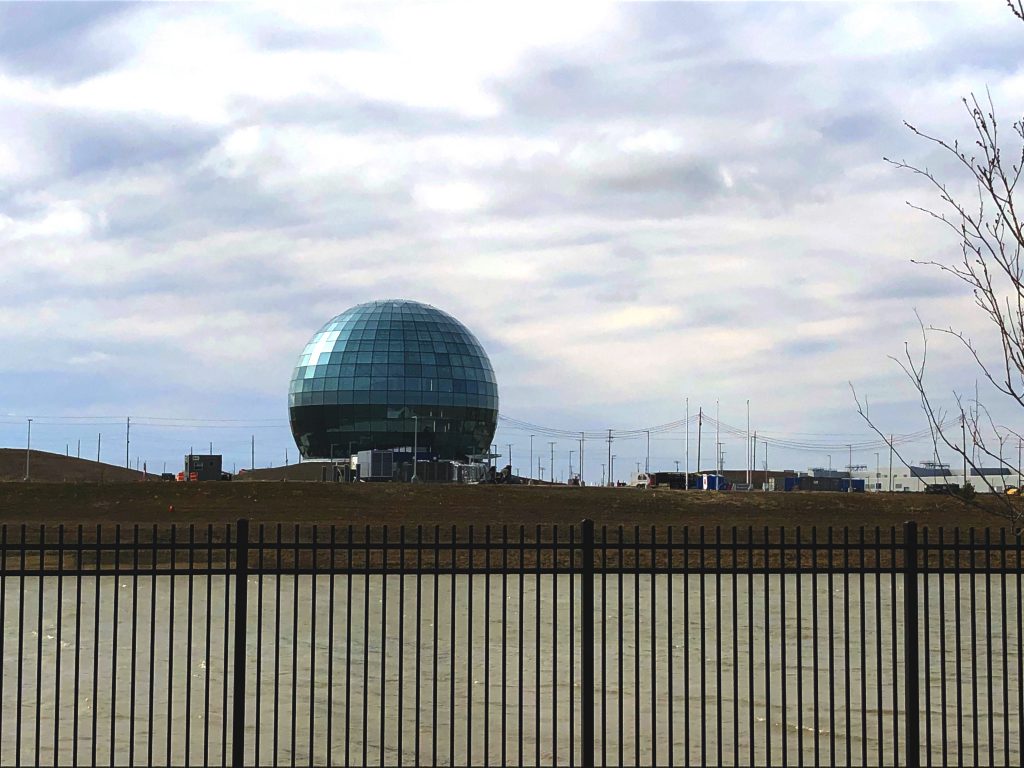Foxconn Wants a New Subsidy?
Deal to build electric cars for Fisker may depend on yet another taxpayer giveaway.
It was exactly four years ago, on July 26, 2017, that Scott Walker and Foxconn announced a deal that was supposed to turn Wisconsin into a new high-tech powerhouse, with a massive LCD manufacturing plant that would be the “eighth wonder of the world,” then-President Donald Trump predicted.
None of that happened. There are no manufacturing jobs and nothing being made in Mount Pleasant, just a few newly constructed but empty buildings on the huge Foxconn campus in suburban Racine County despite a combined state-and-local subsidy that totals $1.23 billion.
But it now appears that Foxconn and Fisker are negotiating with the Wisconsin Economic Development Corporation (WEDC) regarding this project, as Ricardo Torres was the first to report.
What exactly are these talks about? “WEDC’s policy is not to comment on any discussions it may or may not have with a business unless and until a contract is executed,” said David Callender, spokesperson for the WEDC, in a comment to Urban Milwaukee.
The use of the word “contract” is a dead giveaway that Foxconn and Fisker are seeking some kind of contractually guaranteed subsidy or help from the state. This comes just three months after Foxconn signed and declared it was “happy” with a revised deal with the state that slashed the massive subsidies Walker and Republican legislators had promised the company.
In fact, it appears that Foxconn was planning to ask for more state help even before it signed that contract. Back in March Foxconn chairman Young-Way Liu said it still needed to decide whether to build the electric cars in Wisconsin or in Mexico. And the company recently released a statement saying this: “As part of the site selection process, Foxconn and Fisker have engaged with the Wisconsin Economic Development Corporation to discuss plans for electric vehicle manufacturing.”
As with all Foxconn projects announced in the past, from the giant LCD screens to scaled-down screens to coffee kiosks, ventilators and making server components for Google, none of which happened, there is reason to doubt this one.
For starters, manufacturing electric vehicles is something Foxconn has promised with different companies and potential locations several times. As The Verge reported: “Already this year, Foxconn announced it will build cars with Geely, China’s largest private automaker, as well as with floundering Chinese startup Byton… Foxconn also announced in January 2020 that it plans to make electric vehicles with Fiat Chrysler… The status of that joint venture is unclear; Foxconn has not responded to multiple requests for comment on the project over the last year, and a spokesperson for Fiat Chrysler repeatedly declined to comment.”
This project might seem more solid as Fisker announced in May that it had finalized a deal to partner with Foxconn.
Except… The history of the two companies raises questions. Fisker has struggled since 2007 to manufacture electric vehicles. In 2013, the company laid off 75 percent of its workforce and filed for bankruptcy. And Foxconn is again making predictions that don’t come true. The company had said it would decide whether to manufacture the cars in Mexico or Wisconsin by July 1, which hasn’t happened. It’s also not clear whether Foxconn would be be manufacturing cars or components. Young-Way suggested the goal was to compete with companies such as Magna. If so he appears to have fallen behind. Fisker recently announced that Magna will begin manufacturing of the battery-electric Fisker Ocean SUV on Nov. 17, 2022 at Magna’s facility in Graz, Austria. The vehicle will be sold in the U.S. at a base price of $37,499.
Yet the two companies have said the production of these cars wouldn’t start until the end of 2023, more than six-and-a-half years after the original Foxconn deal with Wisconsin was announced. That’s a lifetime in the fast-paced world of electric car manufacturing, that is pitting Tesla, GM and many other car makers against each other, and could undermine the economic basis for the Foxconn project by then, as previously happened with LCD manufacturing.
Absent any evidence that another state is negotiating with Foxconn and Fisker, and given the long lead time of two years before any manufacturing would begin (if it every does), Evers and the WEDC have every reason to take their time and carefully scrutinize any new deal with Foxconn. As Evers no doubt recalls, the original deal with Walker helped defeat the former governor in 2018.
More about the Foxconn Facility
- Foxconn Paid Mount Pleasant $15 Million Make-Up Fee in 2025 - Steph Conquest-Ware - Jan 6th, 2026
- Murphy’s Law: Total Cost of Foxconn Is Rising - Bruce Murphy - Dec 8th, 2025
- WEDC, Foxconn announce additional $569 million investment in Racine County - Wisconsin Economic Development Corporation - Nov 25th, 2025
- Foxconn Acquires 20 More Acres in Mount Pleasant, But For What? - Joe Schulz - Jan 7th, 2025
- Murphy’s Law: What Are Foxconn’s Employees Doing? - Bruce Murphy - Dec 17th, 2024
- With 1,114 Employees, Foxconn Earns $9 Million in Tax Credits - Joe Schulz - Dec 13th, 2024
- Mount Pleasant, Racine in Legal Battle Over Water After Foxconn Failure - Evan Casey - Sep 18th, 2024
- Biden Hails ‘Transformative’ Microsoft Project in Mount Pleasant - Sophie Bolich - May 8th, 2024
- Microsoft’s Wisconsin Data Center Now A $3.3 Billion Project - Jeramey Jannene - May 8th, 2024
- We Energies Will Spend $335 Million on Microsoft Development - Evan Casey - Mar 6th, 2024
Read more about Foxconn Facility here
Murphy's Law
-
The Last Paycheck of Don Smiley
 Dec 17th, 2025 by Bruce Murphy
Dec 17th, 2025 by Bruce Murphy
-
Top Health Care Exec Paid $25.7 Million
 Dec 16th, 2025 by Bruce Murphy
Dec 16th, 2025 by Bruce Murphy
-
Milwaukee Mayor’s Power in Decline?
 Dec 10th, 2025 by Bruce Murphy
Dec 10th, 2025 by Bruce Murphy





















This entire scam has cost Wisconsin an untold amount of time and money. Scott Walker, members of his administration and those at WEDC belong in prison.